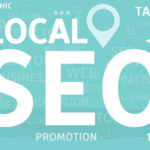
Article In today’s digital age, the healthcare industry is embracing the power of digital marketing to connect with patients, improve brand awareness, and enhance overall healthcare experiences. The convergence of technology and digital marketing healthcare has opened up new avenues for healthcare providers, enabling them to reach a wider audience and provide personalized care. In this article, we will explore the importance of digital marketing in healthcare, discuss its benefits, and provide effective strategies for successful implementation.
Table of Contents
Introduction
In recent years, digital marketing has revolutionized various industries, and healthcare is no exception. With the increasing reliance on digital platforms and the prevalence of online searches for medical information, healthcare providers are recognizing the need to establish a strong online presence. Digital marketing in healthcare encompasses a range of strategies, including SEO, content marketing, social media engagement, and more. By leveraging these techniques, healthcare organizations can effectively communicate their services, educate patients, and build lasting relationships.
The Importance of Digital Marketing in Healthcare
Digital marketing plays a crucial role in the healthcare industry for several reasons. Firstly, it allows healthcare organizations to expand their reach beyond traditional marketing channels, such as print media and television advertisements. With a strong online presence, healthcare providers can connect with patients who are actively seeking information or healthcare services. Moreover, digital marketing enables healthcare organizations to establish thought leadership and build trust by sharing valuable content and engaging with their audience.
Benefits of Digital Marketing in Healthcare

Implementing digital marketing strategies in the healthcare industry offers numerous benefits. Firstly, it allows for targeted marketing efforts, ensuring that the right message reaches the right audience. By understanding patient demographics, interests, and online behavior, healthcare providers can tailor their marketing campaigns accordingly. This targeted approach enhances the effectiveness of marketing efforts, leading to improved patient acquisition and retention rates.
Secondly, digital marketing provides a cost-effective solution compared to traditional marketing methods. Online advertisements, social media posts, and email campaigns often have lower costs and higher return on investment (ROI) compared to print or television advertising. This affordability factor allows healthcare organizations, including smaller clinics and practices, to compete with larger establishments and reach a wider audience.
Strategies for Effective Digital Marketing in Healthcare
To make the most of digital marketing in healthcare, healthcare organizations should adopt a well-rounded approach that incorporates various strategies. Lets explore some key strategies for effective digital marketing in the healthcare industry:
Targeting the Right Audience
Identifying and understanding the target audience is fundamental to successful digital marketing. Healthcare providers should conduct thorough market research to determine the demographics, preferences, and behaviors of their ideal patients. By defining the target audience, healthcare organizations can tailor their marketing messages, select appropriate channels, and deliver personalized content that resonates with potential patients.
Utilizing Social Media for Healthcare Marketing
Social media platforms offer an ideal avenue for healthcare organizations to connect with patients and share valuable information. By maintaining active social media profiles, healthcare providers can educate their audience, address common concerns, and establish themselves as trusted sources of healthcare information. Platforms like Facebook, Twitter, and Instagram allow healthcare organizations to engage with patients directly, answer their queries, and provide updates on services, events, and health-related news. Additionally, social media platforms offer targeted ppc advertising options, enabling healthcare providers to reach specific demographics and increase brand visibility.
Search Engine Optimization for Healthcare Websites
In an era where individuals turn to search engines for medical information and healthcare recommendations, having a well-optimized website is crucial. Search engine optimization (SEO) techniques help healthcare websites rank higher in search engine results, making them more visible to potential patients. By incorporating relevant keywords, creating high-quality content, and optimizing website structure and metadata, healthcare organizations can increase their online visibility and attract organic traffic.
Content Marketing for Healthcare
Content marketing plays a vital role in establishing thought leadership and engaging with patients. Healthcare organizations can create informative and educational content, such as blog posts, articles, infographics, and videos, to provide valuable insights and answer common healthcare questions. By consistently producing high-quality content, healthcare providers can build credibility, improve search engine rankings, and foster patient trust and loyalty.
Online Reputation Management for Healthcare Organizations
In the digital age, online reputation is paramount for healthcare organizations. Patients often rely on reviews and ratings when selecting healthcare providers. Online reputation management involves monitoring and responding to patient reviews and feedback across various platforms, including review websites, social media marketing, and online directories. By actively managing their online reputation, healthcare organizations can address patient concerns, demonstrate their commitment to quality care, and build a positive brand image.
Mobile Marketing in the Healthcare Industry
With the widespread use of smartphones and mobile applications, healthcare organizations can leverage mobile marketing to connect with patients on the go. Mobile-friendly websites and apps provide convenience and accessibility, allowing patients to schedule appointments, access medical records, receive notifications, and engage with healthcare providers seamlessly. Mobile marketing strategies, such as SMS reminders, mobile advertising, and location based targeting, can enhance patient engagement and improve overall healthcare experiences.
The Role of Email Marketing in Healthcare

Email marketing remains a powerful tool for healthcare organizations to communicate with patients and nurture relationships. By building an email database, healthcare providers can send targeted newsletters, informative articles, health tips, and personalized promotions. Email marketing allows for direct and personalized communication, fostering patient engagement, loyalty, and retention. Additionally, automated email campaigns can be utilized to send appointment reminders, follow-ups, and post-treatment care instructions.
Data Analytics and Tracking for Healthcare Marketing
Data analytics and tracking enable healthcare organizations to measure the effectiveness of their digital marketing efforts, identify trends, and make data-driven decisions. By analyzing website traffic, user behavior, conversion rates, and engagement metrics, healthcare providers can gain valuable insights into patient preferences and tailor their marketing strategies accordingly. This data-driven approach ensures that resources are allocated effectively, leading to higher ROI and better patient outcomes.
Compliance and Ethics in Digital Marketing for Healthcare
While digital marketing presents significant opportunities for healthcare organizations, it is essential to navigate the landscape with compliance and ethics in mind. Healthcare providers must adhere to industry regulations, such as HIPAA (Health Insurance Portability and Accountability Act), when handling patient data and maintaining privacy. Additionally, healthcare marketing should be truthful, transparent, and avoid misleading claims or practices. By prioritizing compliance and ethics, healthcare organizations can build trust and credibility, safeguard patient information, and maintain a positive reputation.
Overcoming Challenges in Digital Marketing for Healthcare
Implementing digital marketing strategies in the healthcare industry comes with its own set of challenges. Limited resources, regulatory constraints, and technological barriers can hinder the progress of digital marketing initiatives. However, by understanding these challenges and seeking creative solutions, healthcare organizations can overcome obstacles and achieve successful digital marketing outcomes.









